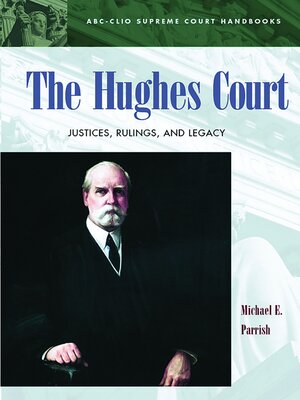The Hughes Court
ebook ∣ Justices, Rulings, and Legacy · ABC-CLIO Supreme Court Handbooks
By Michael E. Parrish

Sign up to save your library
With an OverDrive account, you can save your favorite libraries for at-a-glance information about availability. Find out more about OverDrive accounts.
Find this title in Libby, the library reading app by OverDrive.



Search for a digital library with this title
Title found at these libraries:
| Library Name | Distance |
|---|---|
| Loading... |
An in-depth analysis of the workings and legacy of the Supreme Court led by Charles Evans Hughes.
Charles Evans Hughes, a man who, it was said, "looks like God and talks like God," became chief justice in 1930, a year when more than 1,000 banks closed their doors. Today the Hughes Court is often remembered as a conservative bulwark against Franklin Roosevelt's New Deal. But that view, according to author Michael Parrish, is not accurate.
In an era when Nazi Germany passed the Nuremberg Laws and extinguished freedom in much of Western Europe, the Hughes Court put the stamp of constitutional approval on New Deal entitlements, required state and local governments to bring their laws into conformity with the federal Bill of Rights, and took the first steps toward developing a more uniform code of criminal justice.
Charles Evans Hughes, a man who, it was said, "looks like God and talks like God," became chief justice in 1930, a year when more than 1,000 banks closed their doors. Today the Hughes Court is often remembered as a conservative bulwark against Franklin Roosevelt's New Deal. But that view, according to author Michael Parrish, is not accurate.
In an era when Nazi Germany passed the Nuremberg Laws and extinguished freedom in much of Western Europe, the Hughes Court put the stamp of constitutional approval on New Deal entitlements, required state and local governments to bring their laws into conformity with the federal Bill of Rights, and took the first steps toward developing a more uniform code of criminal justice.







